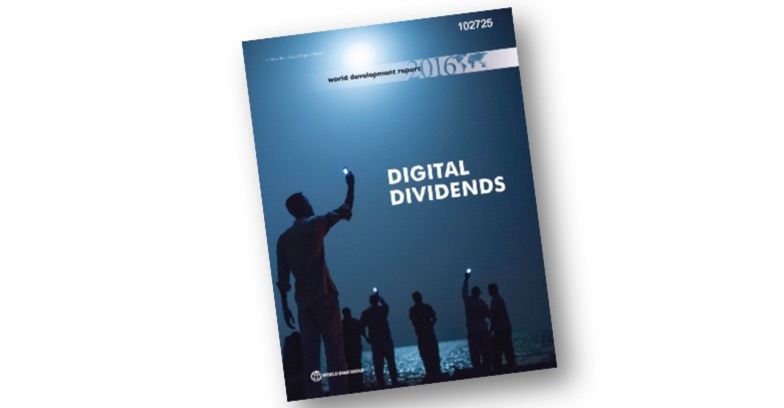Today, the World Bank released its annual World Development Report (WDR), this year entitled Digital Dividends. As suggested in the title, and in line with the mandate of the World Bank, it focuses on the impact of the Internet, along with mobile phones and other information and communication technologies (ICTs), on economic development. We welcome this report, particularly given its timing in the context of the direction of global development efforts and the Internet Society’s own focus.
The WDR 2016 is a comprehensive and detailed report that aims to answer two fundamental questions: why should we focus on promoting digital technologies, and how to achieve the digital dividends. Those of us already lucky enough to use the Internet in our working lives may intrinsically understand its economic benefits, while others feel an urgency to not fall further behind in reaping those benefits. The report serves to provide a framework for this understanding that helps assess why digital dividends are not being realised, and what can be done about it.
Broadly speaking, the digital dividends identified in the report are growth for businesses, jobs for people, and better services delivered by governments; digital technologies realise these dividends by promoting innovation, efficiency and inclusion. In order to help reap these dividends, the report focuses on what it calls ‘analog complements’ – regulations that enable competition and innovation, skills that enable people to realise their opportunities, and institutions that ensure that governments are responsive. A lack of these analog complements explains why, even where there is access to digital technologies including Internet, the benefits may fall short and be unevenly distributed within society.
From a global perspective, the Sustainable Development Goals (SDGs) recently approved by the UN contain an explicit goal to target universal and affordable Internet access in developing countries, along with a number of other goals where Internet access can be critical, such as universal health coverage. The WDR can help to provide a bridge to ensure that increasing Internet access helps to achieve these broader objectives.
Closer to home, this month the Internet Society is launching our 2016 Action Plan that focuses on connecting the unconnected as one of its two main strategic directions (alongside building trust in the Internet). Our focus is not just on increasing access, but also on how that access will provide benefits to users and their communities, for instance through promoting entrepreneurship and women’s empowerment. Again, the WDR provides useful insights into how these broader gains can be realised.
The WDR both increases attention to the importance of Internet access and usage for development, while also providing a detailed roadmap for helping to realise these benefits. We are thankful to the World Bank for choosing to focus on the issues close to our heart in this year’s WDR, and applaud the authors for this landmark report that will have significant impacts on development efforts this year and beyond.

